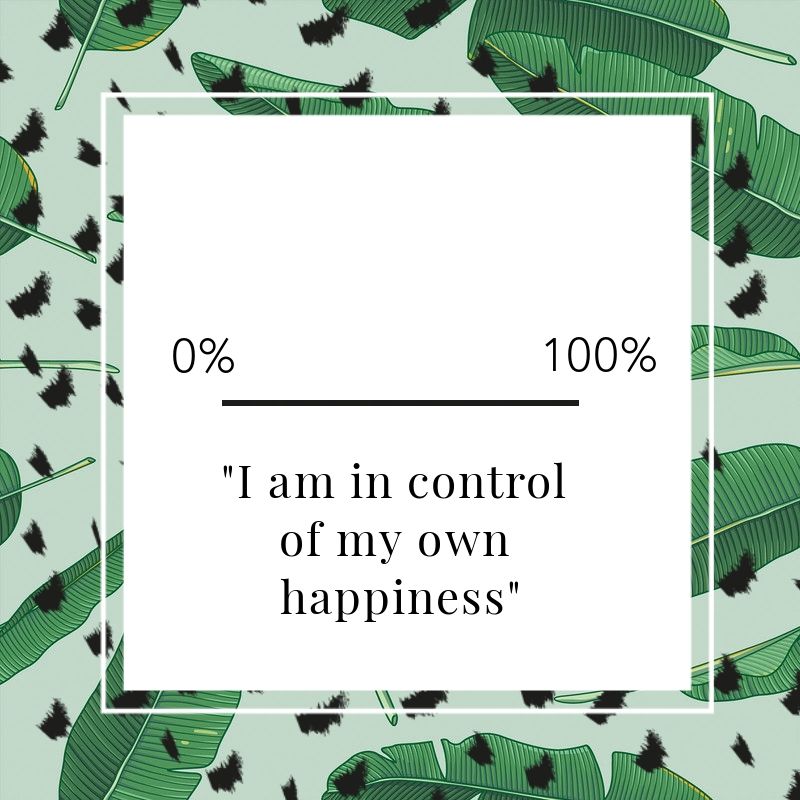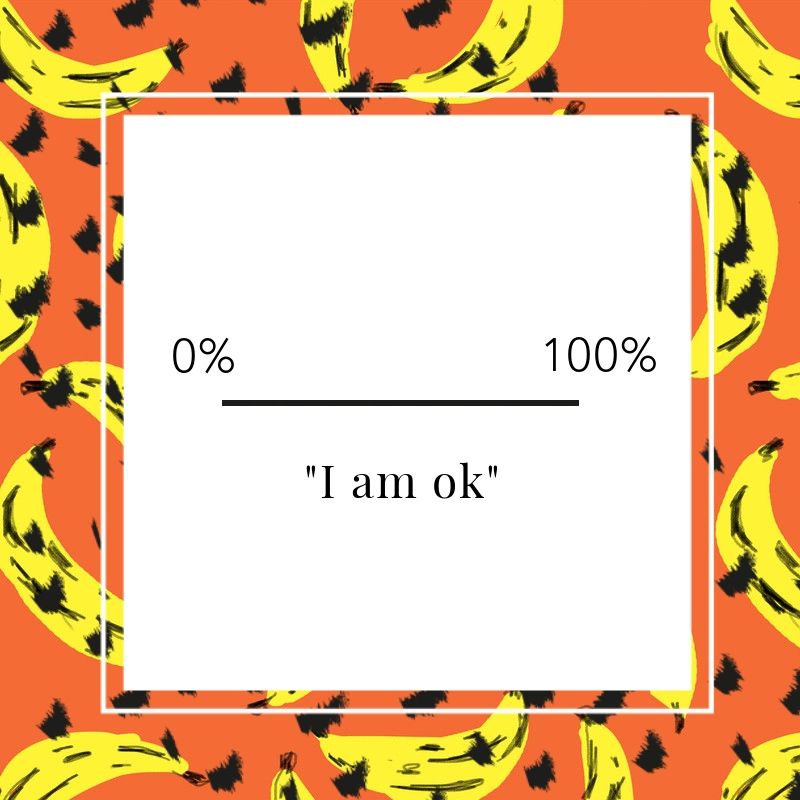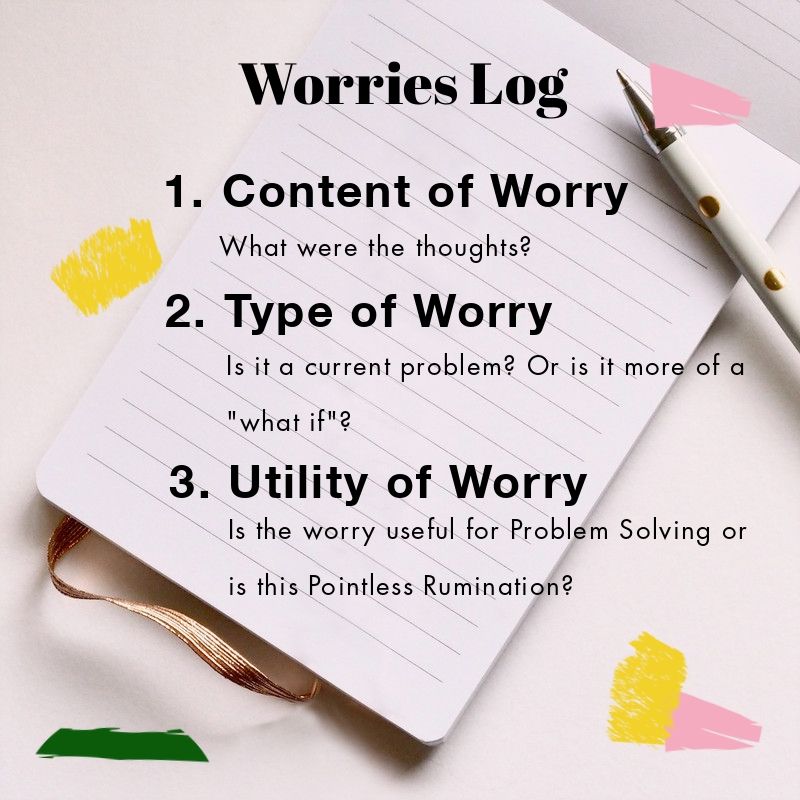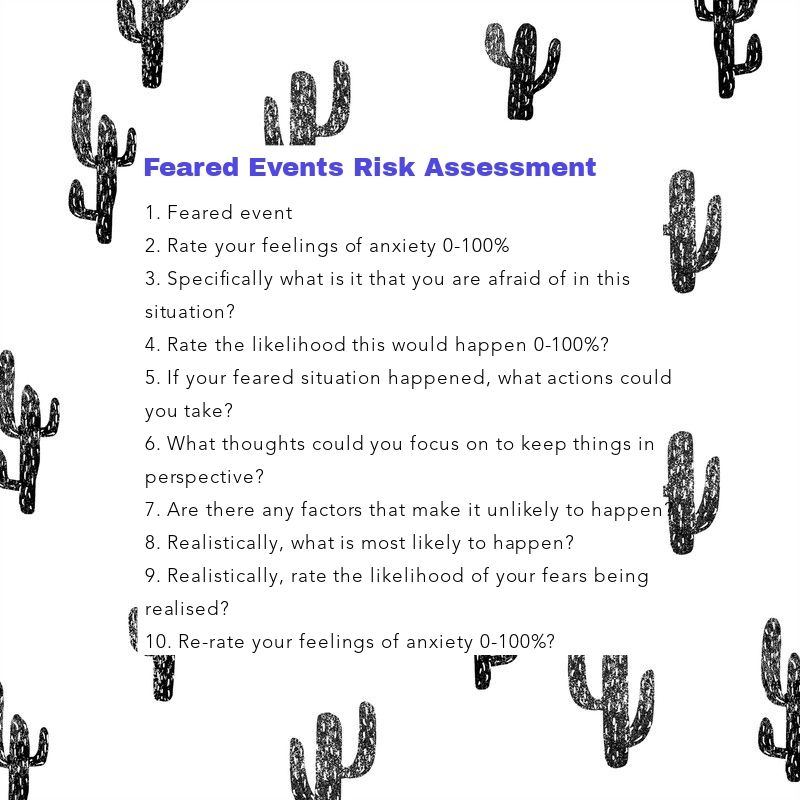WHAT IS COGNITIVE BEHAVIOURAL THERAPY?
|
Consider this: |
|
|
|
|
We might notice that our minds tend to think in certain patterns that are unhelpful. his is so common that these patterns can be grouped together
|
COMMON IRRATIONAL BELIEFS >> AND THEIR CONSEQUENCESI MUST BE LOVED AND APPROVED OF BY EVERYONE>> Anxiety, unassertive behaviour, depression, poor self-esteem
I Must BE COMPETENT, ADEQUATE AND ACHIEVING IN EVERY RESPECT>> Anxiety, depression, frustration, shame, procrastination
PEOPLE SHOULD HAVE THE SAME VALUES AND BELIEFS AS ME, AND THEY SHOULD DO THINGS THE WAY I WOULD DO THEM>> Anger, resentment, poor relationships
CERTAIN PEOPLE ARE BAD, AND THEY SHOULD be blamed or punished for their misdeeds>> Anger, Resentment, Hatred, Depression
WHEN I DO SOMETHING BADLY, i am a bad person, a failure, an idiot>> Poor self-esteem, frustration, depression
The world should provide me with what i need. life should be comfortable. i shouldn't have to suffer or be inconvenienced>> Frustration, depression, despair
it is awful to when things don't go the way that i would like>> Frustration, anger, depression, anxiety
IT is easier to avoid problems than to confront and deal with them>> Procrastination, unresolved problems, relationship tensions, helplessness
Human unhappiness is caused by life circumstances, and it is impossible to be happy when things are not going well for me>> Helplessness, hopelessness, failure to take responsibility, despair
if there is a chance that something might happen, i should dwell on it now>> Anxiety, rumination
there is a correct solution to every problem, and if it's awful if i can't find it>> Indecision, procrastination, anxiety
|
Edelman, Sarah 2006, 'Recognising Faulty Thinking' in Change Your Thinking, ABC Books, pp 16-32
CONTINUUM OF BELIEFS EXERCISE
|
You may wish to ask yourself to what degree you believe in any particular belief.
This could be a rating from 0 to 100% for instance:
You might notice that when you rate from 0-100% the strength in which a belief is held, that alternative views or doubts to that belief may also be present which reduce the certainty of this unhelpful or irrational belief. Bringing awareness to different perspectives can loosen our beliefs so they no longer control us, hold us ransom, cause us to act automatically or feel certain ways. We might continue to hold that belief but perhaps a little more loosely, find ourselves more able to act with freedom, choice and flexibility. A shift can occur in our feelings. |
|
Thought Monitoring Exercise
|
SLEEP
|
|
We may come to associate sleep with certain negative thoughts or behaviours that keep us awake rather than help us sleep.
We can develop positive, gentle attitude towards sleep even if we've been struggling with it in the past. Bed can become a place that is learnt as a relaxing and calm place. |







